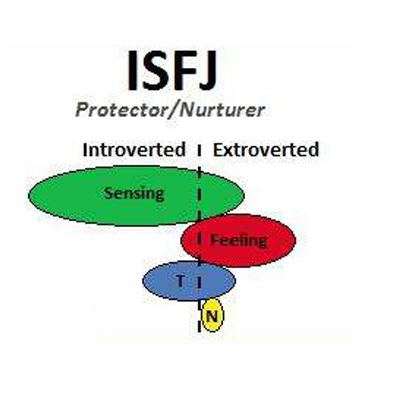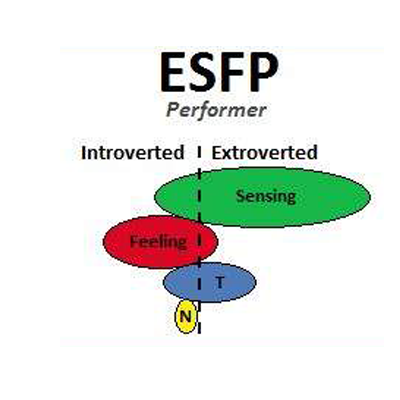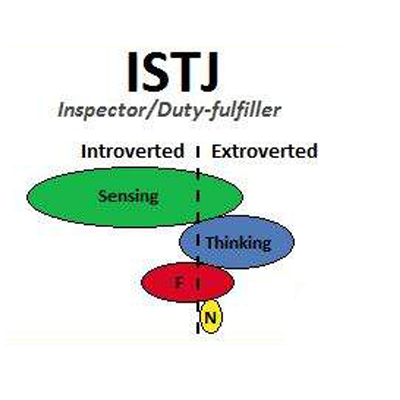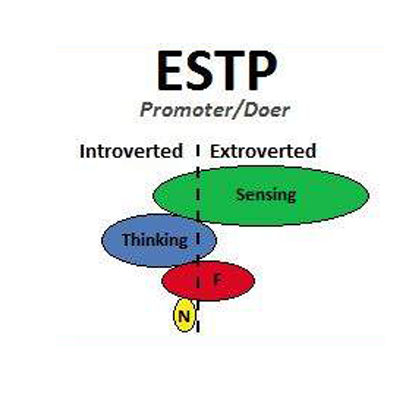The Puzzle of Relationships
DISCLAIMER: There are many factors that determine relationship quality including physical attraction, shared faith, values, education, social status, attitudes toward having and raising children, pets, mental health and more. And a relationship that might work for someone at one point in their lives may be different for them at another time. So you have been warned!
Do opposites attract … or birds of a feather flock together?
It’s complicated but some Jungian analysts say that it may be a little bit of both. Specifically, a theory is that we naturally gravitate to others that use the same dominant communication styles but in an opposite way.
Imagine a world with no drama. Paradoxically, a certain amount of relationship tension may actually enhance attraction. It can be an avenue for growth, self-realization and actualization. In other words, getting to know and love others can help us find and deepen the love we have for ourselves. And personality differences are the spice of life. Let’s put physical attraction on the shelf for a bit and look at how behavioral and communication preferences impact relationship dynamics.
Behavioral Preferences
Most of us have behavioral and communication preferences. For example, most people are right handed (about 90%) and a minority are left handed southpaws (about 10%). A very small percentage use their hands equally and are ambidextrous.
On a side note, scientists have long known that handedness is partly shaped by genes. But it wasn’t until 2019 that they identified differences in parts of the DNA of left- and right-handers. The study, which also analyzed brain scans of 9,000 British subjects, found that in lefties, the parts of the right and left sides of the brain that process language work in better tandem. Whether certain behavioral preferences might be genetically hardwired is yet to be determined.
But most of us seem to have definitive preferences albeit unconscious behavioral patterns. By the way, not all of these are particularly useful for being in healthy relationships. Becoming aware of your personal operating system ( I know this sounds geeky but stay with me) will help you become more conscious.
Extrovert Versus Introvert
Some of us get energy being around other people … while some of us need definitive alone time to recharge. Introverts may like being around others but are more likely to be overstimulated. Some introverts seem to be happiest just being by themselves reading a book or meditating. Extroverts almost seem to have an endless supply of energy (they really don’t).
Being around a strong extrovert can be exhausting for an introvert. At the same time, a strong introvert can seem like a drag or annoying to an extrovert. The terms “party pooper” or “kill joy” come to mind.
Introverts want or need to conserve energy. In self-preservation they will cut off contact, ghost and sometimes partition their lives to recharge. And relationship friction happens especially when they do not communicate these needs well to their potential or current partners.
It is almost obvious how this dynamic plays out in relationships. The extrovert is the life of the party. The introvert isn’t sure that they want to go to the party in the first place. So it stands to reason that if the introvert – extrovert difference is too high there will be friction in the relationship.
I know of couples that have agreed or negotiated taking separate vehicles to parties. The introvert gets to leave early and the extrovert can close the place down. I know of one married couple that have agreed to live in separate homes. They meet a few days a week and that arrangement seems to work for both parties. I was at a ballroom dance hall one time and my friend pointed out a man who loved to dance but his wife did not. The had negotiated that it was Ok for him to come out and dance on Saturday nights. Another friend confided in me that the biggest reason he left his marriage was that he loved being social and his wife did not. For his second wife he chose an extrovert like himself.
Which preference do we have?
So we can easily know if we are extroverted or introverted right? That is not so clear cut. A few years ago Jungian analysts Dr. John Bebe (BA Harvard and MD Chicago) developed something called the Eight-function model. The idea is that we are neither introverts or extroverts but rather have both introverted and extroverted functions. There are individuals that look like extroverts to the outside world (even their close friends) but need serious alone time to recharge … and vice-versa.
I personally lead with extroverted intuition but many people would perceive me as introverted. I know that when I am in thinking mode I am more introverted. In fact, my style is one of the most introverted of extroverts.
Here is the “Horse” or “ISFJ” style. This style is often mistaken as an extrovert because they have strong extroverted feeling and are usually perceived as warm, friendly and people oriented. Nearly 20% of American women hold these preferences. They often make amazing mothers, nurses and nurturers.
According to the 8-function model this style leads with internal sensing (body awareness) but follows it with external feeling or expression. They are likely to wear their feelings on their sleeves.
Mirrors Attract
The Seal (ESFP) can be a good match for the horse (ISFJ) and here is why. Both share a dominant function of Sensing but use it in opposite ways. All other functions are mirrors.


In theory, even though the Seal is warm and friendly on the outside, they often keep their true feelings hidden or covert. In many cases, the Horse leading with external feeling is able to pull those feelings out and giving the horse a sense of purpose (what’s troubling you babe). The seal is “go with the flow” and provides excitement to the horse who generally tends to be focused, stable and hard working…or least perceive that they are.
Where can this go wrong?
The first is the extrovert – introvert tension. Seals are often natural entertainers and the life of the party. Really introverted horses often don’t want to even go to the party.
From my experience, traditional female horses have a need for security…even more so than most. Often, Horses are typically savers and sensible with their resources. Being fairly risk averse they often instinctually seek men that are good or stable providers. Often Seals are not so much. And even though they are good emotional matches may challenge their partner’s conservative sensibilities. This can be a source of tension.
On the other hand, I’ve known men ISFJs and ISTJs who were strong and consistent providers married to ESFP women. The Seal adds spice and excitement to the relationship. Financial responsibility and stewardship is often overlooked in the name of love.. but could become an issue later. The Seal often tends to suppress their “true feelings” or not communicate them to their partner. When their feelings do come out it can erupt like a volcano.
ESFJ/Horses can be seen as stubborn by their “go with the flow” partners. Their style naturally leads them to cling to traditions and beliefs that may no longer be relevant to their current situation. I’ve seen very financially independent and secure women and still worry about their situations long after it is not particularly relevant.
The Beaver and the Horse is another common relationship I have witnessed. Both styles are introverted so there is little extroverted/ introverted tension. Beavers or ISTJs often gravitate toward roles like engineering, lawyer, law enforcement, fireman and administration. They are usually smart and hard working. The husband …typically the ISTJ.. takes on a provider role while the ISFJ gravitates toward nurturing roles such as nurse or school teacher.


The Horse and the Orca
The Horse and the Orca (ESTP) is a very interesting combination as well. Internal sensing is matched by external sensing. The ESTP is a practical thinker and often excels in business such as the trades, construction and real estate. The horse loves the financial security that the Orca provides but sometimes craves a deeper emotional connection.


Sensors vs Intuitives
The S and N functions are about the way we take in, filter or process information presented to us. Sensors believe that they are more pragmatic and prefer to live in the “real world” while intuitives live in the “world of ideas and possibilities”.
The Sketching versus Coloring within In the Lines
Most artists start with a pencil sketch. They want to get the big picture right first .. and then fill in the details. Intuitives are more interested in how the dots connect. These people might be called “generalists”. Sensors are more comfortable coloring within the lines… rather than creating them in the first place. These people are often called “specialists”. Both perspectives are valuable and need each other.
As a designer, I use two software programs…Photoshop and Illustrator. Photoshop, my sensor program, allows me to manipulate every single pixel on the screen. Illustrator, my intuitive program, allows me to easily draw outlines, curves and vectors. We all have a limited amount of energy and ultimately, preferences are about energy conservation. My Photoshop program allows a high degree of control but takes a huge amount of processing power. My Illustrator program is amazing at “sketching” the big picture but misses details.
Sensors are interested in the here and now. Intuitives are interested in the possibilities. The first group often sees the tree but not the forest while the second might see the forest … but not the tree. This dynamic can play out in many ways. The sensor “believes it when they see it” while the intuitive feels that if they “believe it…they will see it”
I believe that sensors are more likely to see themselves as part of a tribe or community. Intuitives are more likely to walk to the beat of a different drummer. Sensors are often drawn to traditional industries such as banking. Intuitives are often drawn to less traditional industries such as start-ups and nonprofits.
So what happens when the “pragmatic realist” meets the “visionary idealist”. It can be good and it can be bad. I met a retriever woman (ESFJ) who was married to a dreamer (INTJ) dragon. For a while they were living the life in Marin county. But eventually, the Retriever lost patience with her partner chasing “windmills” and “pie in the sky”ideas and the marriage ended.
Kevin’s story
For a while after my marriage ended I shared a house with several other men. I affectionately called our place Tempura House …for lightly battered men. One of my housemates was named Kevin and he was on sabbatical from his marriage. He had recently quit an engineering job without a plan B. Frustrated that he was not immediately jumping into the job market, his wife suggested that he have some separation time for him to get “clarity”. (By the way, I didn’t particularly agree with her tactic)
Nevertheless, though we were in a deep recession, Kevin eventually received a job offer that would require a move to Southern California. But he was having difficulty getting his wife on board and receptive to the idea of relocating. Kevin was an intuitive “big picture guy” and knew that he would not succeed in a job that he did not like. On the other hand, his wife saw a job as a means to an end. Asking a few questions about his wife I felt that there was a good chance she was a “linear pragmatic” sensor.
Kevin was being aloof about his new opportunity.. describing it in vague and abstract terms. I suggested that he get very specific about what the experience might look like for his wife and children. I recommended getting photos of the new neighborhood and schools and showing them to her. The next day Kevin excitedly informed me that the conversation with his wife had gone very well and that they were making out in the grocery produce aisle.
Thinker vs Feeler
Thinking and Feeling are decision functions. Thinkers believe that they make their decisions are more objective and rationally perhaps based on evidence (this is debatable). Others might point out that thinkers are more likely to rationalize their emotional decisions.
A great example of how thinkers make decisions in known as the Ben Franklin method. Either on paper … or in their heads a thinker makes a list of pros and cons and compares columns. In some cases, a thinker might add weighting or probabilities to the outcome.
Jeff Bezos, founder of Amazon, is a great example of a thinker. When he was considering starting an internet business he entertained over 30 ecommerce ideas. Because he wasn’t sure which he liked best he did a “deal flow” analysis. He eventually chose books for a number of rational reasons. Incidentally, regarding a wife, he claims he wanted someone who could help him bust out of a Mexican jail if needed.
On the other hand, feelers make their decisions based upon emotion. They often consider the impact that a decision has on others…especially family and friends. Social scientists argue that we are bombarded by a number of sensory inputs. It may be nearly impossible to articulate why we feel the way about something.
Ever go on a date with someone that “on paper” or their dating site should be a good match…and feel nothing. Or ever meet someone who disturbs you but you can’t quite place your finger on it. Feelers tend to listen to their “inner voices” more than thinkers.
Thinkers tend to look at evidence and realize that somethings are counter-intuitive. In other words our brains don’t always provide a realistic picture of what is going on. A great example is the concept of compounded interest. If I take a chess board and put a penny on the first square on… then double it on the second square…how many pennies would I have by the sixty-fourth square? Hint- it’s more pennies than grains of sand in the world.
Another area of tension is faith. Feelers may often have deep religious convictions that are based on faith …or feelings that something is the way it is. A thinker is more likely to want evidence for “truth claims”.
Judger versus Perceiver
Judgers seek closure and Perceivers are more comfortable with mystery or lack of closure.
A common source of tension is attitudes toward being “on time”. This is a generalization but J-types are more likely to be on time for a meeting or event. “If you are on time you are late” is how the saying goes. From my experience, perceivers or P-types can lose track of time. J-Types will often project that their partners are being disrespectful or inconsiderate which may or may not be true.
On the other hand, being overly J can be annoying to p-types. As a p-type sees it, adhering to strict structures can get in the way of taking advantage of new information and opportunities or “smelling the roses”.
Recently, I wanted to share something with a woman I was getting to know. I saw it as sharing a part of me. She didn’t see it as fitting the “romantic dating silo”. I found keeping a separation of “church and state” a bit confining for my tastes…especially when I felt that what I was sharing might improve the quality of her life. I decided that we were probably not be a good fit.
Please note that “J” does not mean “judgemental” but it can appear the way to “p-birds”. J’s gravitate to formal structures and institutions that seem to support their preferences.
We all are concerned about what happens when we die. Certain religions claim to have all of the answers and J-types flock to these. Do these things and you will go to heaven. Don’t do these things and you will face a Judgement day.
We are all wired to try and make a choice but it is especially unforgettable for a high “J” to not make the choice quickly. On the other hand, perceivers are more likely to consider new information. Intuitive Perceivers (NPs) like myself are the worst…or best depending upon how you look at it. In my opinion, we are more likely to adapt or evolve their viewpoint based upon new information.
Ironically, I believe a P &J ( peanut butter and jelly) relationship is more likely to happen than not. In a perceiver-perceiver relationship the problem is that no one ever comes in for a landing. Imagine two planets that are orbiting each other. Both parties are keeping their options open.
J &J matches has a different dynamic. Both parties are likely to commit but neither flexes. So if the match is not perfect… there can be friction. I once read that the INFJ-INFJ match can be really great but consider when both of these strong willed individuals are not aligned on core values or philosophies?
In the P&J relationship the J-type decides that there is a good potential match and puts the proverbial stake in the ground. The p-type orbits the j-type and may eventually come in for a landing. The flipside of this is that the p-type makes the initial decision. If the j-type disagrees or is not “buying in” … it is an uphill battle. The “go with the flow” p-type is much more likely to give up and move on.
Alpha vs Beta
Alphas tend to be dominant while Beta’s are more accommodating. The stereotypical role is the dominant male and more accommodating female. But we all know that the women can “wear the pants” in the relationship too.
Alphas, sometimes known as “drivers”, seek control in both personal and professional relationships. They seem to know what they want and go out and get it. Most “successful” leaders, business owners and executives have some drive.
Being disagreeable or polarizing comes with the trait…especially among people of power. Look at American presidents such as LBJ, Nixon or Trump. Strong alphas are not afraid to ruffle a few feathers along the way.
There are thinker drivers and feeler drivers. My belief is that underlying values can make a difference. Reagan and Bill Clinton are examples high drive feelers…but so is Hitler.
My belief is that most women are naturally attracted to confident and successful men. But problems can arise if the man is too controlling in their personal relationships. In other words, the very same “assets” that allow the man to succeed in the business world might be “liabilities” in their personal lives. Awareness matters and there are no easy answers.
How about alpha women? Culturally, women are conditioned to believe that the man needs to be as or more successful than they are. I suspect that in an age of increasing opportunity for women this is becoming harder and we are finding role reversals.
One woman I know surveyed as a Lion (ESTJ-A) She is a smart and successful physician who did her residency at Stanford. For many years, she was married to an artistic Ray (ISFP-B). Her partner was a muscian and “house husband”. He assumed roles such as driving the kids to soccer practice.
Sometimes you find “power couples” Bill and Hillary are an example. Regardless of your political preferences you can see that both are high achievement and performance people. Bill is a feeler-driver and Hillary an analytic one…and that seems to rub a number of people, especially traditionalists, the wrong way.
Zodian Elements
A few years Dr. Kiersey had the idea to take the Myers-Briggs Temperament Indicator (MBTI) and group styles into four categories. These correlate to our elements of Earth, Water, Fire and Air.
- Earth (Guardians) represent about 45% of population. These sensor-judgers value tradition and security.
- Water (Artisans) represent about 35% of the population. These sensor-perceiver are more go with the flow and gravitate towards creating and fixing things.
- Fire (idealists) or intuitive-feelers are about 15% of the population and are drawn to social causes.
- Air (rationals) or intuitive thinkers are only 5% of the population. The are often scientists and technologists.
I find that there are correlations between element types and a number of other preferences including religious beliefs and politics. For instance, Earths and Waters appear more likely to gravitate towards traditional and more conservative or evangelical faith beliefs. In contrast, Fires and Airs are more likely to be spiritual but non religious, liberal Christian or new age.
I find that Earth and Water tend to match up. Rodney Dangerfield used to joke that they create mud. Air and Fire also appear to be good matches. For the conscious relationship navigator, knowing your element seems to be a good shorthand for recognizing compatibility.
